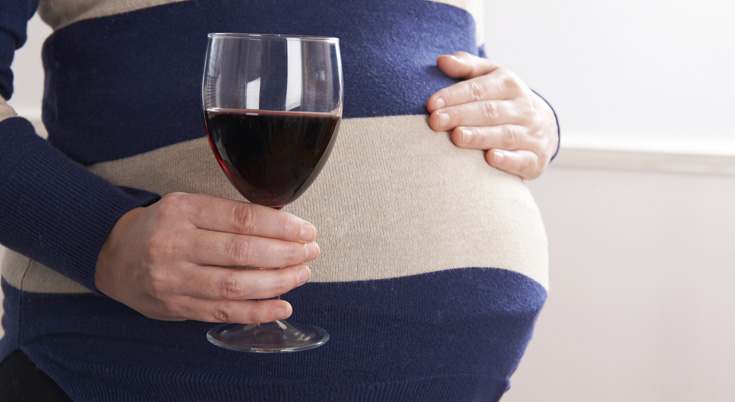

Many studies have been carried out on pregnant women who consume alcohol, and it has been conclusively shown that alcohol is very detrimental to the unborn baby. However, the risks associated with drinking alcohol whilst breastfeeding a baby are not so well understood or defined.
So, what should a breastfeeding mother be aware of when she drinks alcohol?
Is drinking alcohol safe when breastfeeding?
A newborn baby has an immature liver and therefore even small amounts of ingested alcohol can be a burden on the baby’s system. Up until around 3 months of age, infants detoxify alcohol at around half the rate of an adult. An older baby or toddler can metabolise the alcohol more quickly. Therefore, during the first 3 months of life, alcohol should be avoided if at all possible. If you do drink alcohol during this this time, you should drink in moderation. Heavy drinkers or alcoholics who breastfeed should “abstain from drinking alcohol until their babies are weaned” the Recovery Emporium suggests. For those who can’t stop drinking altogether during this time, it is still recommended to continue breastfeeding, rather than switching to infant formula, as the baby is given so much protection by the anitbodies in its mother’s breast milk’ extremely important in fighting off infections.
What is the right amount to drink when breastfeeding?
When your child is older than 3 months, drinking alcohol is not a problem as long as it is done in moderation. Current research says that occasional use of alcohol (1-2 drinks) is not harmful to the nursing baby. Basically, if you’re sober enough to drive, you’re sober enough to breastfeed. Less than 2% of the alcohol consumed by the mother reaches her blood and milk.
How alcohol affects your baby?
Excessive alcohol consumption whilst breastfeeding can be very harmful to a baby. A baby can suffer the effects of drowsiness, deep sleep, weakness, and abnormal weight gain, as well as retardation of mental and motor development. It may also slow down motor skill development such as crawling, walking, and grabbing objects. Your baby’s brain and nervous system is growing during the first year, which is why limiting your alcohol intake is important.
How long alcohol remains in your breast milk?
Alcohol doesn’t stay in breast milk – it returns to the bloodstream as mother’s blood alcohol level declines. Therefore, pumping and dumping breast milk will not remove the alcohol present, or speed up the process of removing alcohol from breast milk. The only reason a mother should pump and dump would be for her own comfort, when she is waiting for the alcohol in her breast milk to dissipate.
The following advice – La Leche League’s The Breastfeeding Book – explains how long alcohol remains in the mother’s system.
“Alcohol passes freely into mother’s milk and has been found to peak about 30 to 60 minutes after consumption, 60 to 90 minutes when taken with food. Alcohol also freely passes out of a mother’s milk and her system. It takes a 55 kg’s woman about two to three hours to eliminate from her body the alcohol in one serving of beer or wine, the more alcohol that is consumed, the longer it takes for it to be eliminated. It takes up to 13 hours for a 55 kg’s woman to eliminate the alcohol from one high-alcohol drink. The effects of alcohol on the breastfeeding baby are directly related to the amount the mother consumes.”
What if a mother drink’s too much, or gets tipsy or drunk?
Mother’s should refrain from breastfeeding until they are completely sober. Ideally, a mother should plan ahead. If she knows she is going to drink more than 1 to 2 units of alcohol, she is best advised to express her milk and store it in a refrigerator, so this can be fed to the baby later, at a time when her own breast milk still contains too much alcohol. When drinking alcohol, a breastfeeding mother may become intoxicated more quickly than a woman of similar weight and height. Research suggests that when a woman is amenorrheic due to breastfeeding, her estrogen levels are low, which in turn, leads to greater intoxication.
It is sometimes believed that drinking encourage milk production. This is wrong. Drinking alcohol inhibits let-down and decreases milk production.
What this means is that breastfeeding and alcohol are not mutually exclusive, provided alcohol is consumed in moderate amounts. By being aware of how much has been drunk, and how long ago, and by thinking and preparing ahead of time, it is perfectly fine for a breastfeeding mother to have the odd drink without harming her baby.






















